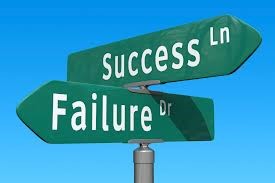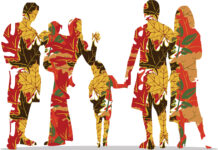Do you skip to the conclusions section at the end of research articles?
We’re certainly at a crossroads now about the future of peer support, and everyone’s looking for evidence for or against it. But if you’re trying to decide whether to continue or to cut peer support in your organization, you’ll need a critical eye as you make your way through the literature.
I recently came across a peer-reviewed journal article by White, Foster, and Marks, et al titled “The effectiveness of one-to-one peer support in mental health services: a systematic review and meta-analysis.” It seemed a smart choice for getting myself caught up on recent peer support outcomes quickly. But on closer inspection, I realized the conclusion is less than helpful for technical reasons, and I’d like to explain why.

First, I should say that I’m a person living with a psychiatric diagnosis. I’m a “peer.” I’ve worked in the behavioral health field for several decades, and almost all my career positions have been related to peer support. I also specialized in research and evaluation in my graduate studies because I’m both excited by and confident in the dynamic question-and-answer process of the scientific method. There’s so much we can do with data if we collect, analyze, share, and discuss it responsibly.
It’s critically important for us to understand what’s passing for “evidence” about peer support in research if we want it to have a future.
So, let’s look at this meta-analysis closely. Meta-analysis is cool because it combines information from many very similar studies. Ideally, the more data and information you have in research, the more confident you can be about results. And, as long as we’re comparing apples to apples and oranges to oranges, reading one meta-analysis should be nearly as good as reading all 23 articles, in this case.
White, Foster, and Marks, et al acknowledged a serious apples and oranges problem with their data, which we’ll look at, but the final two sentences of their conclusion read:
“[We found] a modest, positive effect of peer support on self-reported recovery and an absence of effect, in the evidence to date, on clinical outcomes. Again, [the review] indicates that reporting bias—incomplete reporting of outcomes—continues to undermine the quality of the evidence base as a whole.”
This damning conclusion was a shock to me, honestly. So, I resigned myself to spending the day with this study. What evidence warranted a description of peer support as only slightly useful (or fairly useless), and cast serious doubt on the entire evidence base on peer support?
These are my thoughts about the meta-analysis and its conclusion through my magnifying glass.

The term “reporting bias” in the conclusion suggests we’re cherry picking the data that’s reported. Is that because peer support outcome data don’t show what we’d like them to show? Or is it that the complaint is based on a gross misunderstanding of what peer support is and how it works? If clinical outcomes (apples) are not the same as recovery outcomes (oranges)—and they aren’t—the “missing” apples didn’t belong in the basket mixed up with oranges, anyway.
William A. Anthony defined recovery as “having meaning and purpose in life despite symptoms of mental illness.” We measure recovery concepts in peer support in terms of hope, self-empowerment, self-determination, and engagement in meaningful activity, for example, not scores on clinical inventories. We know we’ll continue to experience symptoms and use mental health services, but also that the quality of our lives can improve dramatically at the same time.
Peer support isn’t a clinical service provided by clinicians with clinical objectives. Measuring service use and symptoms of illness of people receiving peer support seems illogical, in my opinion. To be fair, the apples and oranges problem is a challenge that every meta-analysis grapples with, but the evidence for recovery from mental illness is not the absence of symptoms, and this single misunderstanding seems to account for an enormous amount of confusion for clinically oriented behavioral health professionals.
Can we say that because these researchers found that “there was an absence of effect on clinical outcomes,” peer support doesn’t work? It wouldn’t be logical to come to that conclusion, but a quick glance at the last few sentences of the article might lead someone to think so.
The next major apples and oranges problem has to do with the duties and relationships attributed to peer support specialists. This isn’t really just a simple apples and oranges problem for researchers, it’s an enormous and wildly exotic fruit salad. It doesn’t work to combine “peer support services” in one big basket when they’re not alike unless the differences are relatively unimportant. But these differences are particularly important.
At a national conference about 15 years ago, I was a member of a Q & A panel on peer support. A woman who identified herself as a Peer Support Specialist stepped up to the mic and said, “I feel like a failure. My team asked me to try to get consumers to take their medication. They thought I could do it better because I’m a peer. I can’t do it better, though. I’m terrible at it.” The co-opting of peer support specialists into roles and duties that don’t fit with their training and purpose is a grave issue that plagues us to this day.
A number of services in this meta-analysis were described as “paraprofessional case management” or “structured behavioural interventions.” These activities, by their very nature, seriously undermine a power-balanced peer support relationship, and they really should have been disqualified by the researchers as “too different” (apples, not oranges).
Even “person-centered” case managers have perceived power over information and resources in the eyes of people receiving case management services. Case managers serve as the gateway to knowledge, benefits, resources, privileges, and opportunities. They perform inspections, write assessments, and document reports that directly impact our housing, employment, and rehabilitation prospects, and their evaluations of our progress often shape our treatment plans.
But limiting the service of paraprofessionals, clinicians, and educators with lived experience of recovery from mental illness or addictions is not at all what I’m suggesting. It would be tragic to clamp down and discourage new ideas in the name of standardization. To correct the apples and oranges problems in research on peer support, we don’t need to disqualify, devalue, or eliminate any combination of peer status, job title, or job description from existence. But we must be able to describe and categorize who is doing what so that research outcomes for peer support are reliable, valid, and useful.
For example, a “peer” who is hired and performs the job duties of a Case Manager is a Case Manager. The mere status of being a “peer” should never be used to recategorize the person’s job title or function as “Peer Support.” They may use their lived experience to develop more trust or empathy in the supportive relationship. But renaming or reclassifying this person’s title and/or function to “Peer Support” without correcting the job description and balancing power in the working relationship is misleading, inappropriate, and has muddied the water terribly.
We could study new Case Manager job titles with new job descriptions that indicate the status of the Case Manager as a peer. Those hybrid entities are already out there and they’d be another excellent group to study. But the “Peer Support” category for peer workers, employers, funders, researchers, educators, and decision-makers should refer to a specific set of criteria so that Peer Support, as it is intended, has a future. Many others have written extensively on this topic, and their expert advice should shape a nationally recognized Peer Support job title and job description that employers and researchers follow very closely.
My basic suggestion for defining “Peer Support” job titles and job descriptions is a 3-item checklist:
- The employee publicly identifies as a “peer” who has been certified as a Peer Support Specialist by a reputable organization.
- The job title uses exclusive “Peer Support” wording.
- The job description aligns with the philosophy, training, skills, and practical applications of solid peer support theory.
 There are well-known sources of accurate peer support outcome data, and we should hold researchers accountable for the quality of their data selections. I also understand that describing peer support roles and responsibilities feels like “codifying,” and that we’ve historically resisted labels of all kinds as a grass roots movement. But now researchers need our help, and we need theirs, too.
There are well-known sources of accurate peer support outcome data, and we should hold researchers accountable for the quality of their data selections. I also understand that describing peer support roles and responsibilities feels like “codifying,” and that we’ve historically resisted labels of all kinds as a grass roots movement. But now researchers need our help, and we need theirs, too.
In my opinion, peer support has been around long enough to stand the test of description and measurement. Our terms, functions, and even our philosophy will change over time because we’re a dynamic group of people. Let’s work together to improve the accuracy and quality of peer support outcome data. We have nothing to fear, and a great deal to learn.















We are all peers. Those who imagine they are not imagine they are “better than”, or are “experts” in “you”.
Report comment
Thank you for sharing your opinion on that. It’s interesting.
Report comment
Suffering can become a state of grace in some. Suffering can become a state of bitterness in others. I like people who are in a state of grace about their suffering. I see you as being in a state of grace about your suffering. It is important to be open about our suffering. This then means we use words to define our suffering. Some reach for a shorthand way of outlining the broad brush strokes of their suffering. They say they had an eating disorder and are not ashamed of that kind of suffering. Or they say they have anxiety attacks and are not ashamed of that kind of suffering. Or if myself I say I am schizophrenic and am not ashamed of that kind of suffering. The suffering needs recognized and not stigmatized or shamed into silence.
However, some people think that being given a description of their suffering by someone else is “the suffering”.
They are apt to say the description is a label foisted on them, a stigmatizing persecutory slur. They are apt to deride the description they got landed with. They want a world with no such descriptions of suffering for anyone. But then in their private woundedness they can insist others silence their own prefered choice of how they themselves describe their own suffering, and in that silencing there is an additional bullying coercion to only talk about suffering in agreed “consensus opinion” ways. So what you may then see is one type of “consensus opinion”, such as the DSM consensus ideas, that describe a list of sufferings, being critiqued by those who find that list “a form of suffering in itself”. These people then may silence the suffering of the people who are still quite happy to use such descriptions out of convenience.
I often say bullying is not in the choices. It is not in the words. Words are neutral sound waves. Bullying comes after such choices. Bullying goes after “freedom of choice”.
If someone hates a description of their suffering that they have been given then it should be entirely their free choice to chuck it. Why they may have difficulty doing so is because “consensus opinion” can become the bully’s control technique, using “shame” to coerce anyone who disagrees with the “consensus opinion”.
The problem in the world is everyone is feeling threatened by finding themselves at odds with the many competing oppositional warring “consensus opinons” groups. This sets individuals up to make yet more “consensus opinion” groups to bunker down in by way of defense. Like fortressing themselves in discrete cults where everyone agrees to wear yellow and never ever say the word “bristle”. But such sanctuaries from the wrath of mainstream “consensus opinion” can become just as bullying, by advancing yet more “consensus opinion” rather than advancing “freedom of choice”…
“for ALL !!!”.
Report comment
This was so beautifully said. Thank you, sincerely. I understand better now.
Report comment
I’m barely 1/2 way through a VERY CAREFUL READING of the article, above….yet, already, the “apples-oranges-fruit” metaphor is way over-done, and intrusive, and distracting….I am NOT an apple OR an orange, and I know nobody else who is one, either!….
Report comment
“I’m a behavioral health professional with lived experience of mental illness. My professional activities have included developing peer support workforces, grant writing for innovative educational mental health programs, textbook authorship on the topics of communication skills and recovery coaching, research, teaching, and senior administration of recovery oriented peer support initiatives. My M.S. is in Psychology Research and Evaluation.”….so says Ellen Dayan, about themselves….
But *I* say:____
“I’m a survivor (so far, yet!….), of the genocidal pseudoscientific drug dealing and social control law enforcement scheme of quackery known as “psychiatry”. I was on the original founding board of directors of “Granite State Monarchs”, in 1996, here in my small hometown. I was soon kicked off the board by enemy spies sent by “Monadnock Family Services”, which is the local Gov’t-protected monopoly CMHC. I was age 15, in 10th grade, when I was first mis-diagnosed & pill-raped with neuro-toxins. At age 18, I was first transported in handcuffs & shackles by law enforcement to a State Mental Incarceration Facility for short-term emergency storage, during a non-fatal adverse drug reaction, which was deliberately mis-described as a “mental illness”. I have now been 100% SHRINK-PROOF for over 25 years. And I know psychiatry is a LIE….
….a gently mocking smile, and a slow shake of my head, every time I read that “lived experience” nonsense…. No, sorry, but I don’t consider so-called “social anxiety disorder” to be a “mental illness”, any more than I do “schizophrenia”, or “bi-polar”, or “major depression”…. They are all simply social control categories, and marketing copy for PhRMA drugs…. So go ahead, please PROVE me wrong, if you can….
Report comment
Thank you for your thoughts. I appreciate your experience and your story.
Report comment
I appreciate you letting me articulate my pain. My pain is NOT for myself alone, nor is my pain even mostly about ME. My pain is for my bestie-friend of 15 years, “name redacted”. She was raised in a very dysfunctional, emotionally, verbally, and psychologically abusive Roman Catholic home. As with several other women I know from similar backgrounds & family upbringings, she was sexually molested-used-abused-raped-etc., by her Father for several years. By the time the TRUTH came out, she had been taken to a psychiatrist, given a bogus & fraudulent “diagnosis”, given Electro-Cution Torture(so-called “ECT”), and put on a variety of neuro-toxic psych drugs. She lives in HUD-subsidized housing, on Federal SSI payments, and State-provided Food Stamps. She is FORCED under Court order to go to the local CMHC – “Community Mental Health Center”, where her quack shrink, Dr. Marsh, refuses to listen to her, disrespects her, wastes her time, and expects HER to meet THEIR schedule, as if she is some sort of sub-human robot. EVERY DAY, she is angered and disrespected by the CMHC staff, which have a VERY HIGH employee turnover rate. Good employees quit all the time, leaving the “bad apples” as the bulk of the employees. Or, often, GOOD employees are FIRED, because they are TOO honest, and could upset the apple-cart gravy-train. The jobs at the CMHC are very easy, pay very well, and the employees have absolute immunity to complaint by their victims, as with my good friend, “name redacted”. As the daughter of a Catholic, sexually abusive father, who as an adult is labelled and drugged by psychiatry, she is one of SEVERAL women friends I have known over the years with a very similar story. The girls are taken to shrinks, diagnosed & drugged to keep them from having any credibility if-when they tell the TRUTH about their childhood sexual abuse. Both the Priesthood & Psychiatry have been, and still are, used to cover up such sex crimes against children. My friends case goes deeper. The County Attorney who prosecuted her Father, later became the judge who Court-orders her abuse at the hands of the local CMHC! What a sick, sick, SICK little system!….
Since January, I have been going to the local “Peer Support Agency”, on an almost-every-day basis. To be sure, there ARE problems & “issues” there, but it is a VERY GOOD, very SUPPORTIVE place. They employ “Intentional Peer Support”, as a formal modality. They also use Mary Ellen Copeland’s “W.R.A.P.”, – for “Wellness Recovery Action Plan”, which, like the 12 Steps of A.A., “works if you work it, and you’re worth it, so work it”! There can be NO RECOVERY in traditional, Psychiatry-lead “community mental health centers”. So, when “psychiatry” deigns to “study” & “research” “peer support”, well….
KEEP UP the GOOD WORK, Ellen Dayan! May you be spared the needless suffering psychiatry daily inflicts on others….it really IS a form of GENOCIDE against a very vulnerable population….and I left out the forced abortion she endured….yeah. That happened.
Report comment
Thank you this wonderfully written analysis of the of the significant shortcomings in the current research on the effectiveness of peer support. This is incredibly important in today’s world because incorrectly designed studies and the outcomes derived from these studies can result in decreased resources and a loss of funding to vital services. That this discussion is being lead by professional with lived experience is tremendously exciting. Individuals with mental
Illness have had no voice in what happens to them for such a long time. Thank you Ms. Dayan for advancing the conversation. I look forward to reading more from you in the future.
Report comment
Over 5 years now as a peer support worker. Some takeaways are now about, reluctantly, becoming pragmatic. I’ve been lucky enough to be working with some people for over four years. We try not to put a time scale on support and the person has been “in services” for decades with all that implies.
Do I continue on supporting this person?
Pragmatically, is this the best use of my time?
Are there others who may benefit from the support but can’t avail of it because I am now busy supporting people who are in the same situation and can’t support anyone new?
There have been other relationships with people I support that have naturally come to a close, they have reduced meds, secured work or just not needed the support anymore. Then there is a cohort who may need ongoing longer term support. Where do you stop peer support when the person receiving doesn’t want it to stop, but you feel it’s gone as far as it can?
Rightly or wrongly, as a peer, I’d hope to meet someone at the entrance to services or before and attempt to “steer” them away. Literally before the services (of which I am now a part of) get their claws into them. Would peer support be better in primary care or preventative?
Plenty to research on peer support.
Lots of love to all.
Report comment
Thank you for sharing this story about your experience as a Peer Supporter! I appreciate the thoughts and questions you’re wrestling with. I know that serving as a Peer Supporter in a traditional mental health service environment feels pretty awkward at times, to say the least. I’d love to know how you’ve been able to work those things out, or how you haven’t. Your story is really important. Thanks again for reading and responding.
Report comment
Thanks Ellen,
I should have said it’s something as a collective we are struggling with and trying to tread a path as yet untrodden. We are trying to organise ourselves and be professional about it, without being too professional, with an ever weather eye on co-option. But even here as an individual you feel you are forced to “pick your battles”. My experience, thus far, has been that many of the harms inflicted by services are systemic rather than deliberately Machiavellian.
Medication is always a big one, some people want to hear how bad it is and get some reassurance about reducing/tapering while others take it to be their lifeline. It’s always nuanced to the perspective of the person you are with.
Report comment
Yes, I realize that what you’re describing is something many of us can relate to. When I was beginning to lead peer support groups in an outpatient mental health clinic, I had a heck of a time trying to convince the administration that posting a guard in uniform at the conference room door was going to send the wrong message. It’s uphill, I know.
Report comment
Former peer specialist on an assertive community treatment team. I was expected to meet standards of the agency, for example, productivity minimums and also have effective “interventions” at each appointment I held with service users. This became a frustrating experience. Focusing on outcomes and breakthroughs – no that’s not peer support.
To me meeting with a peer, holding an honest and respectful conversation that opens possibilities for discovery simultaneously satisfied the need for hope and connection.
I put the brakes on being a drug pusher. During one discussion in a meeting about “getting this client to take medication ‘x’, I absolutely declined. Coercion tactics are not in the wheelhouse of a peer specialist. Nor should they be of clinical workers.
In my thinking peer support is a service in the eyes of an agency, as it is billable and will be pushed as far as it can go. Can you do ‘x’ because Jane the case manager had an emergency/appointment went over/ is out today.
Setting boundaries and limits with your boss, co- workers and service users will do wonders for your health.
An additional note, I would have liked to have read the data reported on peer support outcomes as first mentioned in the article.
Thanks for letting me share.
Report comment
Thank you, AnnaB. Your story is exactly what I’m talking about. I really appreciate your example.
I did want to encourage you to look at the full text of the article using the link. That conclusion section is what the article offers, and nothing more.
This meta-analysis provides none of the statistics required to support the conclusion.
Report comment
Glad you didn’t comprise, and try to pressure someone into taking a drug they’re not comfortable with. Yea, peer specialists are often pressured into acting in ways they’re not comfortable by the MH field.
Report comment